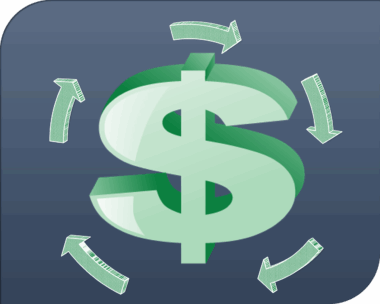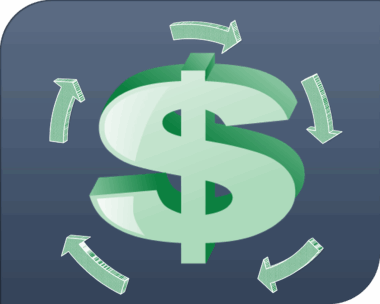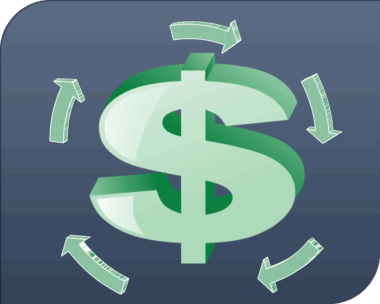Leveraging Software Analytics to Identify Cash Flow Issues Early
Successful cash flow management is key to any business’s sustainability and growth. Utilizing software tools designed specifically for cash flow tracking can revolutionize how businesses manage their finances. These tools provide an array of analytical features that help in identifying issues before they escalate. By understanding cash flow trends through accurate data visualization, companies can take proactive measures to manage their finances better. Moreover, software solutions offer custom insights that can be tailored to a business’s specific needs. This leads to improved decision-making as managers can forecast future cash needs based on historical patterns. Additionally, automated alerts can notify users of unusual transactions, which might signal potential cash flow problems. By incorporating these technologies, business owners can gain granular visibility into their cash positions. This means spending less time collecting and reconciling data and allocating more time toward strategic planning and risk management. The effective application of cash flow tracking software enhances a company’s responsiveness to changing market conditions, ultimately leading to better financial health and stability.
One of the significant advantages of using cash flow tracking software is the facilitation of better forecasting. These tools utilize past data to forecast future cash flow needs, assisting businesses in planning ahead. Through predictive analytics, companies can visualize potential cash deficits and surpluses, allowing them to make informed decisions about expenses, investments, and growth opportunities. This software can analyze incoming and outgoing cash flows, highlighting periods of financial strain. Moreover, users can modify parameters to reflect varying business scenarios, such as economic challenges or growth spurts. This adaptability helps decision-makers create a range of strategies for different situations. A clear understanding of future cash requirements can prevent cash shortages that may hamper operations. In addition, these tools often include interactive dashboards that provide real-time data insights, enabling team members to remain informed and aligned. Communication improves significantly as stakeholders can access shared resources swiftly. An effective software solution makes it easier for teams to collaborate on financial planning and investment strategies. Thus, it amplifies the organization’s overall financial management efficacy.
When selecting cash flow tracking software, it is crucial to ensure it integrates well with existing financial systems. Seamless integration allows for real-time updates and data synchronization, resulting in more accurate insights. Moreover, it provides a holistic view of the financial health of the business. Additionally, business owners must consider user-friendliness as a primary feature when selecting their cash flow tracking tools. The best software should offer intuitive interfaces, allowing users of varying technical skills to navigate without extensive training. In parallel to these features, businesses should also prioritize robust customer support and regular updates offered by the software provider. Vendors that provide training resources can help users maximize the tool’s capabilities. This can include instructional videos or dedicated account support, which can guide users in the tool’s functionalities. Furthermore, consider the pricing structure carefully to ensure it aligns with your budget and does not strain cash flow further. Therefore, a well-thought-out selection process ultimately influences the return on investment for the cash flow management tool.
Automating Cash Flow Processes for Efficiency
Automation is another critical feature that modern cash flow tracking software offers. By automating repetitive tasks, businesses can save time and reduce the risk of human error. Data entry, invoicing, and report generation can be automated, allowing teams to focus on more strategic initiatives. This operational efficiency leads to increased productivity and reduced operational overheads. Additionally, automated cash flow systems can enhance compliance by ensuring that financial reports are generated consistently and in line with regulations. The increased accuracy in documentation also minimizes errors that could otherwise lead to financial discrepancies. Regular updates and audits become less cumbersome through automated reminders and alerts for review timelines. This ensures that businesses maintain a clear audit trail, which is crucial during financial assessments and audits. Thus, the leverage of automation not only contributes to cost savings but also instills confidence among stakeholders regarding the organization’s financial practices. As a result, adopting such solutions is imperative for organizations targeting sustainable growth in an increasingly competitive market.
Furthermore, the incorporation of cash flow tracking software enables better cash management strategies. With access to real-time financial data, businesses can identify spending patterns that may not be immediately evident. This insight can promote more disciplined spending habits and help teams to align on financial priorities. For instance, understanding seasonal cash flows can inform inventory purchases or trigger necessary adjustments to marketing expenditures. Effective cash management requires real-time insights to deploy resources wisely. Tracking software can also provide scenario analysis functionalities, simulating various financial strategies for comparison. Furthermore, stakeholders can evaluate how decisions impact overall cash flow dynamically. Such informed management fosters financial discipline. Consequently, businesses can optimize their operations based on actionable data insights that enhance their bottom line. This level of strategic financial oversight is crucial for maintaining liquidity and ensuring operational sustainability. Thus, proactive cash management strategies derived from software analytics empower businesses to navigate fluctuating economic conditions more effectively.
Conclusion: The Future of Cash Flow Management
To sum up, software analytics are invaluable for early identification of cash flow issues and optimization of financial management. Investing in modern cash flow tracking solutions not only helps organizations in pinpointing areas of concern but also in planning effectively for future growth. Decision-makers are equipped with real-time data that fosters strategic adaptability. Moreover, the automation of cash flow processes streamlines operations, thereby minimizing the risk of financial mismanagement. As technology continues to evolve, the integration of artificial intelligence and machine learning into cash flow software is expected to advance further. Future innovations promise enhanced predictive capabilities and even greater accuracy of financial forecasting. The evolving technological landscape is likely to redefine traditional approaches to cash flow management. In this way, businesses can remain responsive to market changes and maintain strong financial health in uncertain times. By leveraging these advanced tools, organizations can ultimately fortify their financial positions and drive lasting success. Thus, in an increasingly complex financial environment, adopting specialized software now is more important than ever.
In addition to improving cash flow tracking, software can also simplify budgeting processes. This beneficial aspect helps businesses allocate funds appropriately while assessing their financial landscape. A well-structured budgeting function integrated into cash flow tracking software allows for real-time revisions to forecasts as circumstances change. This way, companies can adapt to their financial realities effectively and pivot when necessary. The software can highlight areas where spending might exceed budgets or showcase surplus funds available for immediate reinvestment. When budgets are closely monitored, teams can identify potential overspending early on, which can save significant resources. Moreover, developing a culture of budget adherence across departments is more manageable when utilizing consistent software tools. Employees become more accountable for their expenditures when they can visualize how their spending impacts overall cash flow. Additionally, customizable reporting features can provide insights tailored to specific operational needs, enhancing planning across the board. Organizations can facilitate collaboration by sharing real-time budget-related data among team members. In doing so, teams are empowered to make informed financial decisions swiftly based on accurate projections.
Lastly, businesses can utilize cash flow tracking software for performance measurement of their financial strategies. The software can track progress over time, identifying trends that provide insights into how strategies impact cash flow. Organizations can analyze and evaluate expenses against revenues and track the success of implemented measures. This performance evaluation is crucial in determining whether specific actions are yielding the desired results. By having ongoing assessments, companies can pivot strategies quickly when certain initiatives do not bear fruit. This flexibility allows for agility in response to unforeseen challenges. Consistent assessment of cash flow allows businesses to remain proactive rather than reactive. The integration of KPIs enables stakeholders to gauge operational efficiency while identifying the areas necessitating improvements. As a result, businesses can refine their strategies to ensure alignment with overall financial goals. Moreover, the adaptability afforded through regular performance reviews can catalyze innovation as teams are encouraged to explore new ways to optimize financial performance, resulting in a ripple effect that drives overall growth.





